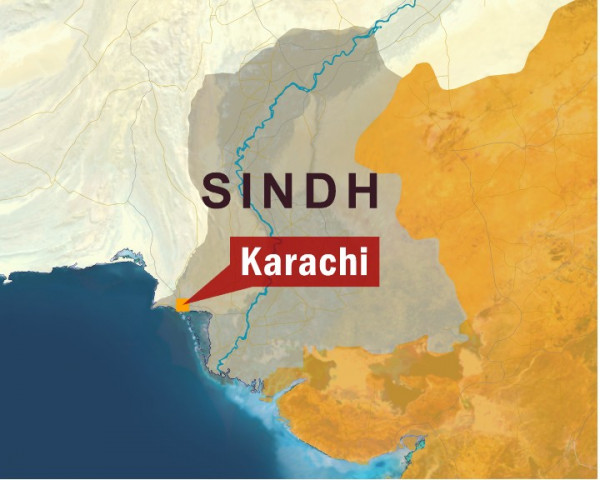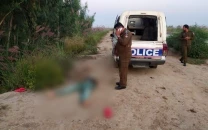‘It’s in you to give’

June 14 marks World Blood Donors Day, held in order to create awareness about the importance of donating blood while at the same time acknowledging the dedication and sacrifice of those who give their lifelines to others. This year, the government’s theme is ‘New Blood for the New World’.
“The government celebrates any and all days related to health so that people can get to know about the disease and also find out how they can help,” said Dr Zahid Ansari, secretary of the Sindh Blood Transfusion Authority. Elaborating on the theme, Dr Ansari said that the problems we have in today’s world are different from those encountered 15 years ago. With rising incidents of terrorism there is a rising number of trauma patients. Emergencies coupled with crippling poverty and poor nutrition means that the need for blood donations is felt more than ever now, added the doctor.
There are 138 blood banks registered in Sindh.
“It makes me happy to know that by donating blood, I could be saving somebody’s life,” said Wasim, a donor at a blood bank.
According to a volunteer at the Patients Welfare Association, Rabika, blood donation is very important. “People should donate blood, especially those with negative blood groups because it is very hard to find this blood type,” she added.
More than 80 million people around the world donate their blood every year, according to a World Bank report. However, a mere two per cent of Pakistan’s population makes the effort to expose their skin to sharp needles. The supply and demand dynamics paint a slightly pessimistic picture, with 15,000 to 17,000 blood bags collected in a year while the country needs around 40,000 bags.
According to Dr Ansari, there are 57 countries in the world where 100 per cent of the population donates blood. The problem with Pakistanis is that they will only donate blood in special circumstances such as when a close relative or family member needs it. “Voluntary donation as an initiative comprises just 5 per cent of the donors,” lamented Dr Ansari. In Iran it is the opposite, with 95 per cent of their donors donating blood for people they did not even know, he pointed out.
The problem is also that people just do not know the significance of donating blood, said Dr Ansari.
“Donating blood helps to create new blood,” he explained, “It actually creates more haemoglobin.”
People aged between 18 years to 50 years can donate blood every three months, he added. On average, a person has around five litres of blood in the body. Donating blood regularly can help save precious lives.
Dangers of blood transfusion
While giving blood can save a life, it can also pose fatal risks if carried out improperly, explains a study on blood banks in Karachi, which was published in the Oxford Press.
If there is any error in finding out the blood type, life threatening cross-reactions can occur. Inept collection and storage of blood means that bacterial diseases can spread while transfusions also pose the threat of transmitting deadly blood-borne pathogens such as the hepatitis B Virus, the HIV and the hepatitis C virus. Moreover, added the study, poverty exacerbates these dangers.
Safe transfusion needs an ‘organised infrastructure, continuous supply of electricity, well-educated professionals and readily available supplies of expensive equipment and [other] resources that are all typically in short supply in developing countries’ stated the researchers in their report.
with additional reporting by Aisha Iqbal
Published in the Express Tribune June 14th, 2010.



















COMMENTS
Comments are moderated and generally will be posted if they are on-topic and not abusive.
For more information, please see our Comments FAQ